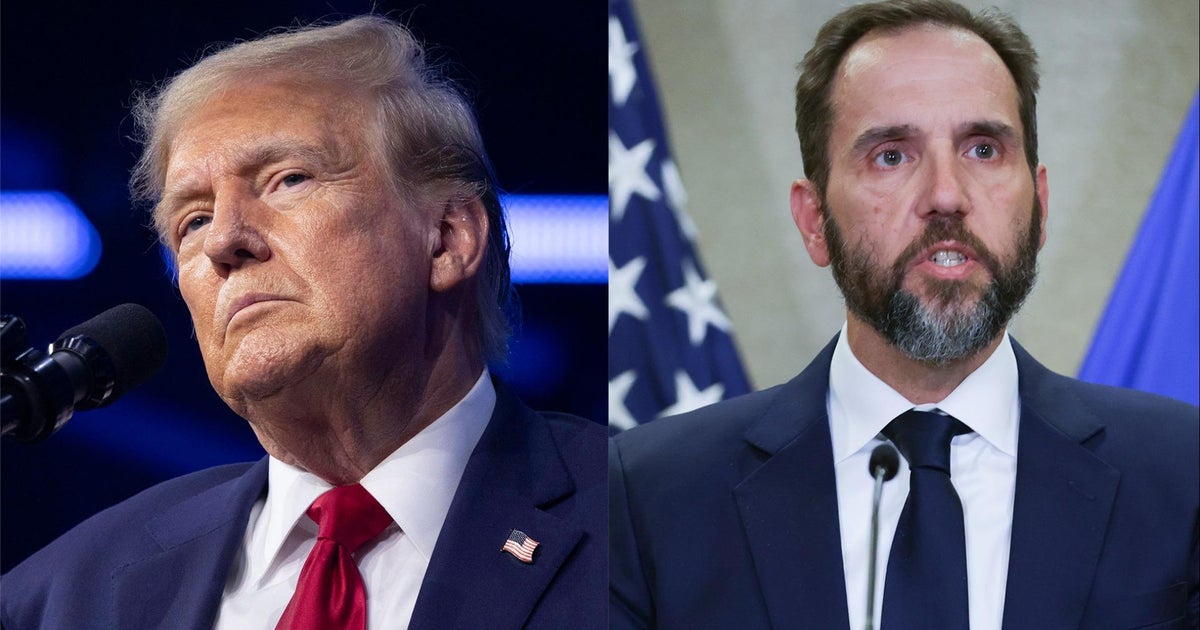Star Tribune
State Patrol trainer says Trooper Ryan Londregan followed training in fatal shooting of motorist Ricky Cobb II

In a newly filed affidavit in Trooper Ryan Londregan’s murder case in the fatal shooting of motorist Ricky Cobb II, a State Patrol use-of-force trainer accused prosecutors in the Hennepin County Attorneys Office of lying and opined that Londregan followed his training and did not violate policy.
It’s the latest development in the case that is growing increasingly political as Londregan’s defense attorneys and prosecutors in County Attorney Mary Moriarty’s office clash repeatedly in court filings and in the press. Both parties head to court Thursday morning to argue over Moriarty’s independent use-of-force expert, who she stopped working with after the expert said Londregan acted reasonably.
But in a defense filing Wednesday, Sgt. Jason Halvorson, a 25-year veteran of the force, said that a senior prosecutor who authored the criminal complaint took Halvorson’s statements out of context and “lied by omission.”
According to that complaint: Halvorson was asked whether a reasonable officer would believe that pointing a gun at a fleeing driver and yelling at the driver to stop would cause the driver to stop. He said “No.” He was asked, “would it be foreseeable to expect the exact opposite, meaning [the driver] would continue to leave?” He replied, “That was probably his intention was to flee the area, so he’s gonna keep going in that direction away from me.”
Halvorson said in Wednesday’s filing that senior prosecutors Mark Osler and Josh Larson attended that interview with BCA agents and the prosecutors asked him the hypothetical questions and cherry-picked from the 37-page interview.
“The truth in this matter is that I went on to explain that choice of actions in this context are ‘situationally dependent,'” Halvorson wrote.
Upon his review of the interview transcript, the trainer said his exact words were:
“… if you’re throwing out so many hypotheticals it’s just one of those situations where it’s each individual situation is all dependent upon the actions of the actual suspect you’re dealing with and how they comply to the de-escalation and how they actually respond to the de-escalation. And If I’m not seeing the actual responses that I’m looking for, I have to make the decision quickly of what my next move is gonna be.”
He said Osler excluded critical facts and context from the complaint, “thereby purposefully misleading the reader of the complaint.”
A statement from Moriarty’s office Wednesday said defense attorneys were using the court to file “baseless press releases” with false accusations.
“There is significant evidence that supports the charges in this case. The complaint is accurate and lays out the evidence to establish probable cause,” the statement said, adding later: “We will address the voluminous defense filings and litigate the case in court, and not in the press.”
Morairty’s office charged Londregan with second-degree unintentional murder, first-degree assault and second-degree manslaughter in the fatal shooting of Cobb during a traffic stop last July 31. Troopers pulled Cobb over on Interstate 94 in Minneapolis for driving without taillights around 2 a.m. They attempted to remove him from the vehicle after learning he’d been accused of violating a standing domestic order for protection. As Cobb shifted the vehicle into drive and took his foot off the brake, the car lurched forward, dragging another trooper positioned at the driver’s side. Londregan fired twice from the passenger side, striking Cobb twice in the torso.
In the affidavit filed Wednesday, Halvorson said he has served as the use-of-force training coordinator for 10 years and trained Londregan, as well as Trooper Brett Seide, who was trying to get Cobb out of the vehicle before Londregan arrived.
The trainer said that he did not perform a complete use-of-force review. He said he offered to do one, but Larson and Osler didn’t accept it.
A complete review, Halvorson said, requires meeting with Londregan, and Halvorson said that as he understands, Hennepin County District Court issued an order preventing Londregan from speaking with witnesses about his case.
The complaint also states: “Under State Patrol policy, any use of a firearm is deadly force. A firearm may be readied for use only in situations where it is reasonably anticipated that firearms may be required. State Patrol policy also states that members shall not shoot from or at a moving vehicle, except when deadly force is authorized, and that troopers should make every effort not to place themselves in a position that would increase the possibility that the vehicle they are approaching can be used as a deadly weapon against them or others.”
But to that, Halvorson wrote in the affidavit that he did not rely on patrol vehicle pursuit policy because “this was not a vehicle pursuit.” The trainer added that Londregan “did not violate the use-of-force General Orders, including, but not limited to the use-of-force policy…”
“Trooper Londregan acted in accordance with his training,” Halvorson said.
Moriarty’s independent use-of-force expert, Jeffrey Noble, a former police chief from California who is frequently used as an exert in police cases, including the killings of George Floyd and Philando Castile, is being subpoenaed by Londregan’s defense attorneys to provide all records from his work with prosecutors.
Prosecutors said they handed over all Noble-related records to the defense, but the defense argues there’s more information they are entitled to.
Judge Tamara Garcia ordered the subpoena to be on pause until she makes a determination on Noble.
Star Tribune
Oat mafia emerges in Minnesota’s Driftless Region. Can they get any help?

ZUMBRO RIVER VALLEY, MINN. – From his combine on an October afternoon, harvesting dried-out soybeans the color of dust, Martin Larsen points to a hillside where his ancestors from Scandinavia homesteaded.
History might be happening again on the Larsen farm.
Last year, on this plot of land along the Zumbro River, the 43-year-old farmer from Byron grew oats. Not oats for hogs or cows. But oats for humans. He hauled the oats to a miller across the state line into Iowa. A previous year, Larsen even had a contract with Oatly, the trendy Swedish maker of milk alternatives.
Something of an oat renaissance has been occurring down in the fields west of the Mississippi River. During winters, Larsen — through his job with the Olmsted County Soil and Water Conservation District — evangelized to fellow farmers on the humble small grain.
His friends and neighbors were listening. As of this fall, over 60 farmers, covering 6,000 acres across southern Minnesota, have joined Larsen’s informal coalition to grow food-grade oats. They call themselves the “oat mafia.”
Star of breakfast food, children’s books and, increasingly, those nondairy lattes, oats are easier on the environment, requiring less nitrogen than corn, which means a lot in the karst-rich hill country of southeastern Minnesota, where the U.S. Environmental Protection Agency has tasked state officials with cleaning up drinking water.
“Nitrates come from this,” said Larsen, driving his gray Gleaner combine on a patch of soybeans beneath a hillock just beyond the suburban sprawl of northwest Rochester on a recent warm Friday afternoon. “I’m not going to beat around the bush anymore. That’s what the data says.”
But as the oat mafia looks to the future, they’re struggling with a basic marketing question: Who will actually buy these oats they’re growing?
Star Tribune
Minnesotans reflect on Biden’s apology

Lt. Gov. Peggy Flanagan and her daughter were among the throngs Friday as President Joe Biden delivered the apology that many Indigenous Americans thought would never come.
“I think he really said the things that people have been waiting to hear for generations, acknowledged just the horror and trauma of literally having our children stolen from our communities,” said Flanagan, a member of the White Earth Band of Ojibwe. “It’s a powerful first step towards healing.”
Hundreds of boarding schools operated in the 19th and 20th centuries, separating Indigenous children from their families and forcing them to assimilate to European ways. Many children were abused, and at least 973 died, according to a report from the U.S. Department of the Interior.
Other Minnesotans reacted similarly to Flanagan, saying they welcomed the apology but that additional action is needed to help Indigenous people move forward.
Anton Treuer, a professor of Ojibwe at Bemidji State University, wrote in a newsletter that the apology was “a welcome first step on the journey to healing.”
“There is no way to truly right historical injustices for the children buried at Carlisle, Haskell, and other schools, but these words set a new tone for the country and will help heal the anguish so many Natives have carried for so long,” Treuer wrote. “It gives me hope that we can come together to reconcile and heal our troubled nation.”
Sen. Mary Kunesh, DFL-New Brighton, the first Indigenous woman to serve in the state Senate, called Biden’s apology encouraging.
“This recognition of past wrongdoings is an important step towards healing relationships between the United States and the sovereign nations affected by these past systems,” Kunesh said in a statement. “This dark period of American history must be remembered and taught.”
Star Tribune
MPD on defensive after man shot in neck allegedly by neighbor on harassment tirade

“I have done everything in my power to remedy this situation, and it continues to get more and more violent by the day,” Moturi wrote. “There have been numerous times when I’ve seen Sawchak outside and contacted law enforcement, and there was no response. I am not confident in the pursuit of Sawchak given that Sawchak attacked me, MPD officers had John detained, and despite an HRO and multiple warrants — they still let him go.”
On Friday, five City Council members sent a letter to Mayor Jacob Frey and Police Chief Brian O’Hara expressing their “utter horror at MPD’s failure to protect a Minneapolis resident from a clear, persistent and amply reported threat posed by his neighbor.”
Council Members Andrea Jenkins, Elliott Payne, Aisha Chughtai, Jason Chavez and Robin Wonsley went on to allege that police had failed to submit reports to the County Attorney’s Office despite threats being made with weapons, and at times while Sawchak screamed racial slurs. Sawchak is white and Moturi is Black.
The council members also contend in their letter that the MPD told the County Attorney’s Office that police did not intend to execute the warrant for “reasons of officer safety.”
At a Friday afternoon news conference at MPD’s Fifth Precinct, O’Hara said police had been working to arrest Sawchak since at least April, but “no Minneapolis police officers have had in-person contact with that suspect since the victim in this case has been calling us.” The chief pointed out that Sawchak is mentally ill, has guns and refuses to cooperate “in the dozens of times that police officers have responded to the residence.”
O’Hara put aside the option to carry out “a high-risk warrant based on these factors [and] the likelihood of an armed, violent confrontation where we may have to use deadly force with the suspect.” The preference, he said, was to arrest Sawchak outside his home, but “in this case, this suspect is a recluse and does not come out of the house.”



